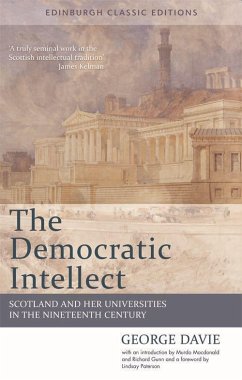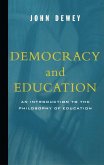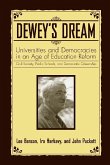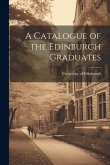'Davie offers an insight into some of the more crucial issues of modern times. A truly seminal work in the Scottish intellectual tradition.' James Kelman First published in 1961, The Democratic Intellect provoked a new relationship with Scotland's philosophy of itself. Scotland has always had a distinctive approach to higher education. From the inauguration of its first universities, the accent has been on first principles. This unified the approach to knowledge - even of mathematics and science - through a broad, philosophical interpretation. This generalist tradition, contrasting with the specialism of the two English universities, Oxford and Cambridge, stood Scotland in good stead. It characterised its intellectual life, even into the 19th century, when economic, social and political pressures enforced an increasing conformity to English models. George Davie's account of the history of these movements, and of the great personalities involved, has proved seminal in restoring to Scotland a sense of cultural identity. The Democratic Intellect is rightly regarded as a benchmark in Scotland's intellectual heritage and continues to have a marked influence on those promoting enquiry and improvement within our colleges and universities. George Elder Davie (1912-2007) was one of Scotland's most influential modern philosophers. He was Reader in Logic and Metaphysics at the University of Edinburgh and a Fellow of the Royal Society of Edinburgh. His other publications include The Crisis of the Democratic Intellect, The Scotch Metaphysics: a Century of Enlightenment in Scotland and two volumes of essays: The Scottish Enlightenment and Other Essays and A Passion for Ideas.








